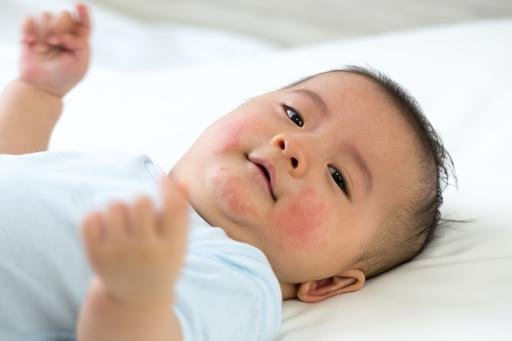Like the 6-7 years old children and grown-ups, infants can have sensitivities to the food sources they eat, the things they come in contact with, and the tiny nano-sized particles they breathe in the home or outside.
Can A Baby Indicate Its Exposure To Allergies?
Also, when an infant has indications of any sort, it tends to be hard to sort out what’s going on because somewhat one can’t depict those symptoms. Does the baby’s poop indicate something about the allergies? Well, let us look at what researchers have to say about this.

A newborn child will create a great deal of crap during the principal year of its life, yet the absolute initial one may proffer key pieces of information about the danger of creating sensitivities. From 100 random infants, the specialists dissected meconium’s samples (faecal matter) and enrolled those infants in the Child’s Cohort Study, which is a wellbeing investigation of kids in Canada for a long time.
Meconium, a substance of dull green color, is made out of what, generally, the baby ingests and discharges during the time in the belly, from their amniotic liquid and skin cells to particles called metabolites.
An infant regularly passes faecal matter during the primary life day. The examination tracked down that the less various sorts of particles an infant’s faecal matter contained, the more prominent the kid’s danger of creating sensitivities by their 1st year.
The research senior co-creator Dr. Brett Finlay said, “Our examination uncovered that babies who created hypersensitive sharpening by their 1st year had essentially less ‘rich’ faecal matter (meconium) upon entering the world, contrasted with the individuals who didn’t create unfavorably susceptible refinement”.
He is an educator at the Laboratories of the Michael Smith and divisions of organic chemistry and sub-atomic science, and immunology and microbiology of university. Scientists additionally tracked down that a decrease in specific atoms was related to the changes to critical bacterial gatherings that assume a basic part in gut organisms, which are significant in both wellbeing and illness.
“Meconium, the fecal matter acts as a capsule of time, unveiling what the recently conceived infant was exposed to while being in mother’s womb,” explained Doctor Charisse Petersen. The meconium contains a wide scope of particles experienced and gathered from the mother’s belly, and by then, it transforms into the hidden food focal point for the soonest gut microorganisms.
He is an investigation accomplice in UBC’s part of pediatrics. He also added by saying that the research also revealed that a newborn child is disclosed to the little particles inside the mother’s womb, which takes a major part later on wellbeing.
The analysts utilized an AI calculation to anticipate with 76% exactness, which they observed was a step more attested than any time in recent memory, regardless of whether a newborn child would create hypersensitivities by its 1st year. The examination discoveries have significant ramifications for newborn children in danger, said the creators.
“The sensitive infants are at a high risk of getting asthma. Presently, we have a chance to recognize in danger newborn children who could profit by early mediations even before they actually start to give indications and manifestations of sensitivities or asthma further down the road,” said Doctor Stuart Turvey. He is a teacher in UBC’s branch of pediatrics and co-overseer of the Child’s Cohort Study.
